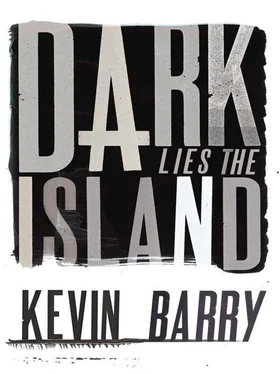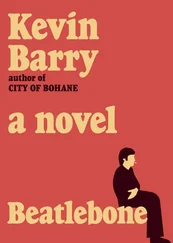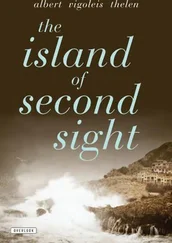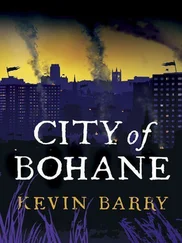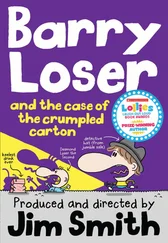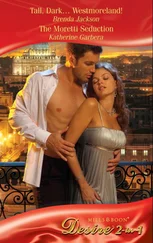Kevin Barry - Dark Lies the Island
Здесь есть возможность читать онлайн «Kevin Barry - Dark Lies the Island» весь текст электронной книги совершенно бесплатно (целиком полную версию без сокращений). В некоторых случаях можно слушать аудио, скачать через торрент в формате fb2 и присутствует краткое содержание. Год выпуска: 2012, Издательство: Jonathan Cape, Жанр: Современная проза, на английском языке. Описание произведения, (предисловие) а так же отзывы посетителей доступны на портале библиотеки ЛибКат.
- Название:Dark Lies the Island
- Автор:
- Издательство:Jonathan Cape
- Жанр:
- Год:2012
- ISBN:нет данных
- Рейтинг книги:3 / 5. Голосов: 1
-
Избранное:Добавить в избранное
- Отзывы:
-
Ваша оценка:
- 60
- 1
- 2
- 3
- 4
- 5
Dark Lies the Island: краткое содержание, описание и аннотация
Предлагаем к чтению аннотацию, описание, краткое содержание или предисловие (зависит от того, что написал сам автор книги «Dark Lies the Island»). Если вы не нашли необходимую информацию о книге — напишите в комментариях, мы постараемся отыскать её.
Dark Lies the Island
Dark Lies the Island — читать онлайн бесплатно полную книгу (весь текст) целиком
Ниже представлен текст книги, разбитый по страницам. Система сохранения места последней прочитанной страницы, позволяет с удобством читать онлайн бесплатно книгу «Dark Lies the Island», без необходимости каждый раз заново искать на чём Вы остановились. Поставьте закладку, и сможете в любой момент перейти на страницу, на которой закончили чтение.
Интервал:
Закладка:
You cut tonite you photo n show me you hot fucken bitch I love you Sara K xox
The time-running-out bubble erupted on her screen — sixty seconds remaining — and she thought about it but did not insert another coin. She let the seconds come down
5, 4, 3, 2, 1
and each beat brought her deeper inside. She was upstairs in the lobby annexe. The shadows breathed. She picked up her stuff and came down the stairs three at a time and out through the lobby at blizzard pace. She crossed the car park to Apache Pizza and gorged on a four-cheese twelve-inch for its lovely seeping saturates. She was eating enough for half a rugby team and thin as a stick. Her brain was moving so fast she was losing weight. She left Apache Pizza and got in the car and gunned it for the holiday home, where she was staying, alone, on her ‘year out’.
‘What in Jesus’ name are you going to do out there, Sara?’ her father had said. ‘It’s going into winter, girl.’
‘Just some art stuff,’ she said.
Don’t cut, his eyes said.
‘Just give me the keys and the alarm code,’ she said. ‘Please?’
She had completed her Leaving Certificate in June. The results came in the second week of August. She had enough points for Medicine. She had enough points for Veterinary. She had enough points to build a rocket and fly it to the moon. She hadn’t slept right in months. Her skin was flawless but for the scarring on the insides of the wrists, but for the scarring on the insides of the thighs, but for the scarred remains of the smiley she had carved one night on the inside of the left ankle.
‘We all have delicate complexions,’ her mother had said.
We! As though a clan, or tribe, or family. The town as she pelted through had the feel of the season’s quick changing, a summer killed off, a winter to come. If she floored it, she would be in time for a 1940s British stiff-upper-lip movie of the kind they showed on UK Memories channel in the early evening. Stories about war widows and valour and the last embers of hope. Ladies who had been left even more elegant and poised by the ravages of war, ladies who had been left ‘ve-hy much ah-lone, aksherly’.
She said it aloud as she drove:
‘Ve-hy much ah-lone.’
As though with marbles in her mouth:
‘Ve-hy … mach … hah-lone.’
Her brain was moving so fast it was out the other side of town already and looking back. She saw herself drive. She felt like she was filmed every minute of the day. The car was a low-slung, old-school Saab in a deep wine colour. Her father was a radical architect who had reinterrogated the concept of walls. She got back to the house he had designed for family summers. It was all glass and angles and odd little nooks situated to give the eeriest, the most austere possible views across the dour bog landscape.
‘Wounded’, her father would call the bog, all wet-eyed as he gazed out soulfully and swirled in his hand like a gigantic glass of Masi.
The house had a bog stream run through it — there was the low constant murmuring of its brown tarry waters. She lay on the six-inch-thick glass panelling over the stream as it ran the length of the open-plan space. It wasn’t a room; it was a space. Sometimes tiny eels swam through, sperm-like. Her father had driven out with her, that first weekend, and he conspicuously left every blade in the house in its place. He was phoning nightly from Granada and acting so blithe. The Sabatier kitchen knives were right there on their block. She got up and went around the room and flicked all of the lamps on.
She slid the glass doors and stepped outside and she looked back into the lit space — a magazine shot. Minus people. She turned and looked out beyond the expanse of the bog, where the ground fell away, so quickly, and there were low reefs of dune, and then a descent to superlative, untenanted coast. Each year it lost about a metre to the Atlantic — it was coming towards the house, the water. This was Clew Bay, in County Mayo, and hundreds of tiny islands were strewn down there. They were inky blobs of mood against grey water. It was a world of quiet dimly lit by the first stars and a quartermoon. The house behind her was silent as a lung.
She went back inside and crawled onto the low grey couch and sounded an animal’s groan. She felt like she was sucking up all the poisons the planet had to offer. The house had been tested for radon, and there were trace elements, it was reported, and she breathed deeply, with a cupped hand in her crotch, and she tried to suck it up but radon deaths were slow. A sick tiny flutter from her crotch like the heartbeat of a gerbil. She found the remote and hit up UK Memories and sure enough there was a 1940s stiff-upper-lip playing:
‘Chin up, wren, t’will soon be over!’
Vehy-mach-hah-lone. She closed her eyes for the swoon of the matinee strings. She felt the heaviness of the sorrow that hovered above — she saw it as a kind of airship. The pizza cheese re-formed and coagulated in her gut. She waited for the faces to form once more in the plate glass of the windows.
She killed the sound on UK Memories. She went around the room and flicked all of the lamps off. She went again and sat by the vague burbling of the stream. She let full dark take over the glass — that it might banish what was out there. But each night sent its visitors. The open maw of a mouth she might see or the slash of a sudden, quick turn that could only be the angle of a nose, like a Frenchman’s cruel hard nose — the night put its faces to the glass. The murmuring of the stream came to work as the voices of those gathered outside.
She believed and at once did not believe.
‘Please?’ she whispered.
The word was enough to break the spell. She got up and went about the room and she flicked on all of the mismatched lamps — the kitsch 80s lamps, and the vintage 50s lamps, and her father’s treasure, a superb thin angular 70s Belgian classic that had the look of a spider, reaching, and cost about the same as a retro Saab. Three of them made like ever. In some humourless loft in Antwerp. She slid the glass doors and stepped boldly outside and into the chill of the fresh dark.
‘Nothin’ and nobody,’ she said.
‘Veh-hy … much … hah-lone,’ she said.
She convinced herself that it was so. It was chill outside but a sweet chill. The stars worked to hang a melody on the dark sky. The bogside was picked out along its expanse in an abstract confusion of shapes; the rocky outcrops and the reefed banks and the lone tree — a wind-twisted whitethorn — that was visible from the house.
‘It’s on holiday,’ her father said once. ‘Get away from all the other trees.’
The black breathing of the sea was beyond; the sea was a palpable beast, and as though it was waiting. She sniffed hard for its sexual note — brine, ozone, salt.
She turned back inside and slid the glass doors shut and every surface in the room gleamed in the lamplight with menace. The space was planed to a riot of sharp angles. The Sabatier block sat glowering on the brushed granite worktop. She shook her head rapidly from side to side, like a dog after rain. Her phone rang.
The ringtone was demented, so loud and fast, cacophonous, and she knew that it must be going on past seven o’clock — or eight o’clock, his time — in Granada. He’d have a couple of drinks down and some jamón and Manchego for nibbles. He’d be feeling languid and deep and thinking, okay, I’ll just check in, I’ll play it casual.
She had switched off voice message — it would not go to voice. So how long to let him suffer? Twenty rings? Or forty?
She answered somewhere in between.
‘Hey.’
‘Hey.’
The busy sound of a Spanish bar behind him, its air of ease and banter, a lightness of tone, happily analytical, the spat consonants and sibilant hiss; Andalucía.
Читать дальшеИнтервал:
Закладка:
Похожие книги на «Dark Lies the Island»
Представляем Вашему вниманию похожие книги на «Dark Lies the Island» списком для выбора. Мы отобрали схожую по названию и смыслу литературу в надежде предоставить читателям больше вариантов отыскать новые, интересные, ещё непрочитанные произведения.
Обсуждение, отзывы о книге «Dark Lies the Island» и просто собственные мнения читателей. Оставьте ваши комментарии, напишите, что Вы думаете о произведении, его смысле или главных героях. Укажите что конкретно понравилось, а что нет, и почему Вы так считаете.
